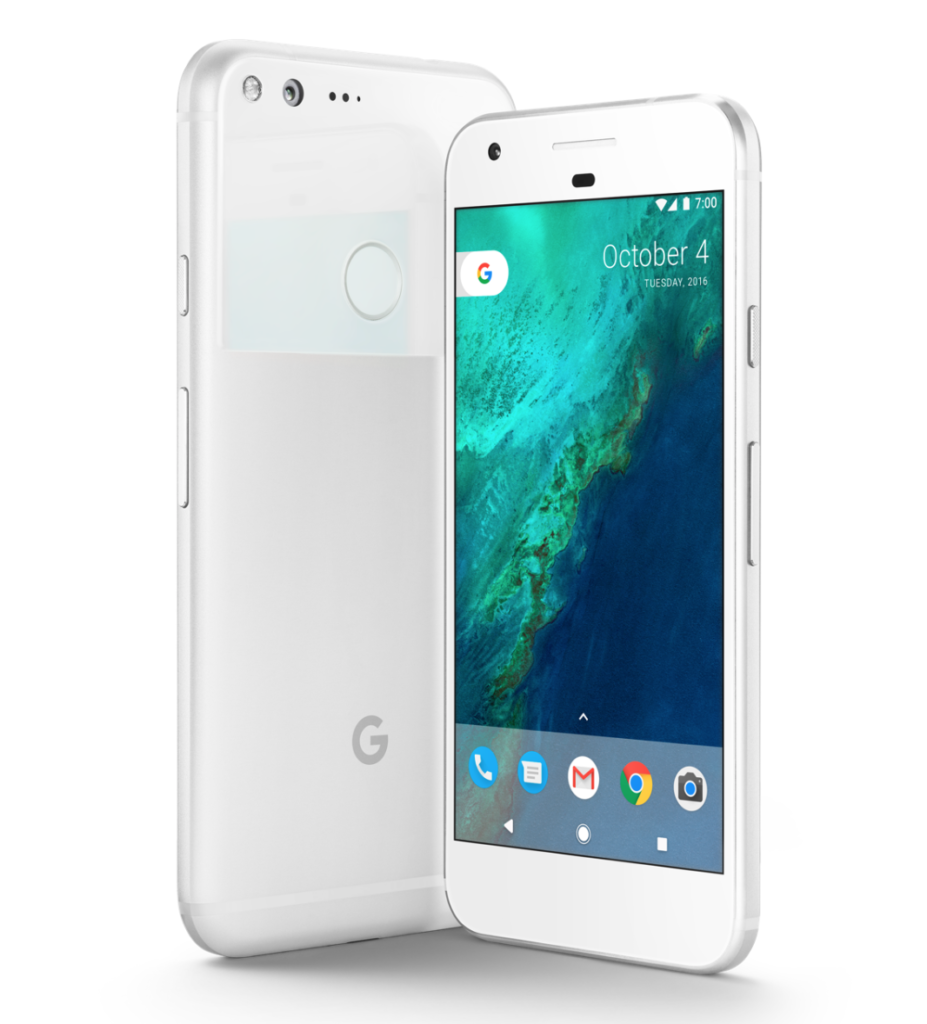Google Pixel Phone via Google
With Pixel, we obsessed over every detail, from the industrial design to the user experience. We carefully sculpted the surfaces of the phone, and rounded the edges to make it easy to grip. We used 2.5D Corning® Gorilla® Glass 4 on the front display and back glass to accent the aerospace grade aluminum body.
The glass on the back also features Pixel Imprint, our fingerprint sensor, which is placed on the back of the phone where your finger expects it. You can even swipe it to access your notifications. And no matter what you’re using your phone for, you’ll need a battery that lasts all day and charges fast — up to seven hours in 15 minutes.
Pixel is available for pre-order today starting at $649 in the U.S., U.K., Canada, Germany and Australia. Pre-orders in India will begin October 13. In the U.S., we’re teaming up exclusively with Verizon to make Pixel available nationwide at all Verizon retail outlets, including Best Buy stores. We’re also offering Pixel unlocked on the Google Store and, for you Project Fi fans out there, you’ll be happy to know that Pixel is the latest device to work on the Fi network.
Sold by Google, Built by HTC, Designed by Apple.

